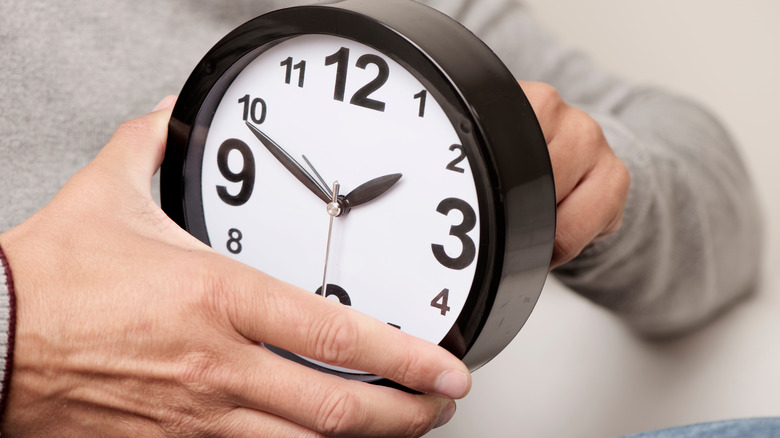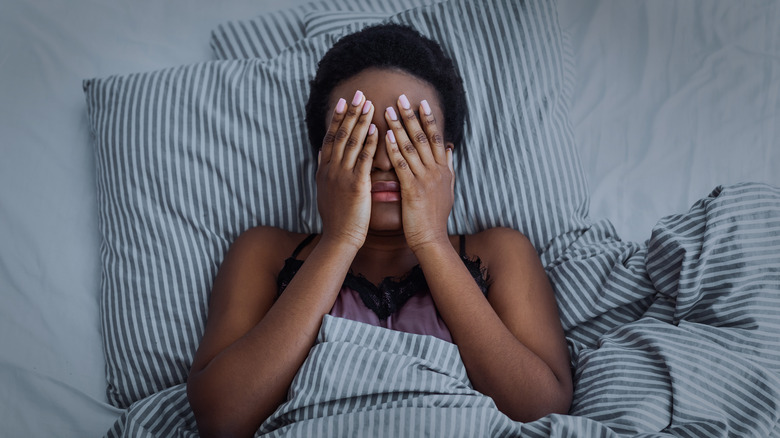Why Daylight Savings May Be Different This Year And How To Have A Healthy Transition
The dreaded "spring ahead" occurs on March 13 in the U.S. this year, and if that thought sends you into a panic, you're not alone. Due to the start of daylight saving time (DST), we jump forward an hour and lose a precious hour of sleep. But experts are saying this year's adjustment might be a little bit easier.
We can thank Benjamin Franklin for DST, who thought of the idea in an effort to save energy by not needing to use lamps at night if there's an extra hour of sunlight at the end of the day (via Live Science). His idea was adopted in 1918 in the United States. But according to a 2020 survey by the American Academy of Sleep Medicine (AASM), 63% of Americans are in favor of eliminating DST and keeping a fixed, year-round time. Only 11% want to keep it.
Losing an hour of sleep can be pretty detrimental, too. "The lost hour of sleep can make people feel tired, and the shift in clock time disrupts your body's natural clock, creating a temporary 1-hour 'jet lag,'" Dr. Jennifer Martin, member of AASM board of directors and professor of medicine at UCLA, tells Healthline. In fact, in the week after DST begins, human error in sleep-deprived healthcare workers increases by 18%, according to a 2020 study published in the journal Sleep.
Could this year affect you differently?
"Because many are working from home, people may have more flexible schedules and find it easier to adjust to the time change without the added stress of a commute," Dr. Eve Van Cauter, chair of Sleep Number's scientific advisory board, and professor of medicine at the University of Chicago tells Healthline. If you're lucky enough to work remotely, you may be able to use it to your advantage and transition into DST more gently.
Dr. Martin suggests getting to bed 15-20 minutes earlier each night leading up to the time change, which can adjust your body's "time cues." She also suggests setting your clock ahead an hour the night before DST actually begins so that you're already going to bed an hour earlier (per Healthline). Work on your sleep atmosphere by making sure your bedroom is dark, cool, quiet, and relaxed. Dr. Van Cauter recommends getting outside into the daylight as soon as you wake up if possible, since the exposure to morning light will halt the release of melatonin, which makes us sleepy.


